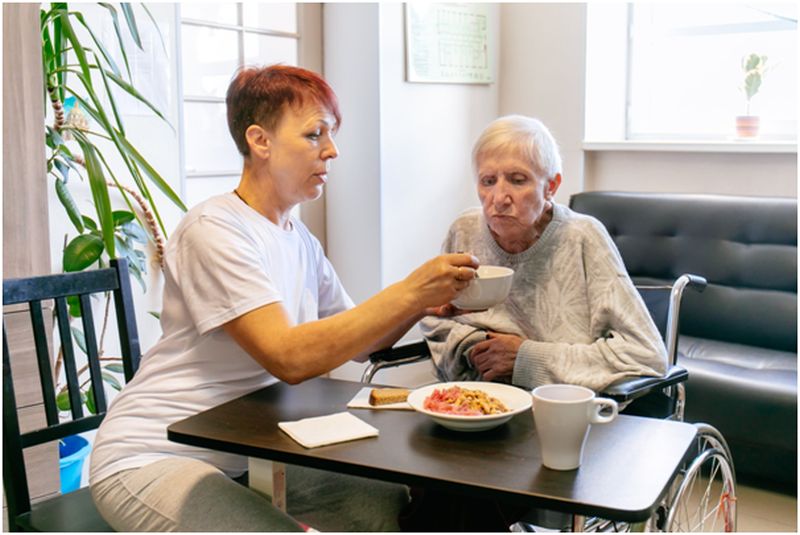As our loved ones age, proper nutrition becomes increasingly important to maintain their health, well-being, and quality of life. This is particularly true for elderly hospice patients, who may face unique challenges in maintaining a balanced and nutritious diet. In this article, we’ll discuss the importance of proper nutrition for elderly hospice patients in Chicago and provide practical tips to ensure they receive the essential nutrients they need. We’ll also introduce LifeChoice, a leading at-home hospice care provider in Chicago, and explain how they can support families in managing their loved one’s nutritional needs during this critical time.
Why is Proper Nutrition Important for Elderly Hospice Patients?
Good nutrition is crucial for elderly individuals, as it can help:
- Maintain a healthy immune system
- Support cognitive function
- Promote healthy digestion
- Enhance bone and muscle strength
- Improve wound healing and tissue repair
- Reduce the risk of chronic diseases and infections
For hospice patients, maintaining proper nutrition is particularly important, as it can improve their overall comfort and well-being during their end-of-life journey. However, elderly hospice patients may face unique challenges when it comes to maintaining a healthy diet, including:
- Decreased appetite
- Altered taste and smell perception
- Difficulty chewing and swallowing
- Digestive issues
- Limited mobility or cognitive decline that makes meal preparation difficult
By addressing these challenges and ensuring that elderly hospice patients receive adequate nutrition, families and caregivers can help improve their loved one’s quality of life during this critical time.
Practical Tips for Ensuring Proper Nutrition for Elderly Hospice Patients
1. Address Appetite Loss and Taste Changes
Appetite loss and taste changes are common in elderly hospice patients, making it difficult for them to consume the necessary nutrients. To address these issues:
- Offer smaller, more frequent meals and snacks throughout the day
- Encourage nutrient-dense foods, such as avocado, nuts, seeds, and whole grains
- Experiment with different flavors and seasonings to make meals more appealing
- Serve meals at room temperature to help minimize strong smells and tastes
2. Manage Chewing and Swallowing Difficulties
Elderly hospice patients may experience difficulty chewing and swallowing due to dental issues, muscle weakness, or other medical conditions. To assist with these challenges:
- Offer soft, easy-to-chew foods, such as mashed potatoes, applesauce, and yogurt
- Cut food into small, bite-sized pieces
- Puree or blend foods to create smooth textures
- Encourage the patient to take their time when eating and to chew food thoroughly
3. Promote Healthy Digestion
Digestive issues, such as constipation, can be common in elderly hospice patients, making proper nutrition even more important. To promote healthy digestion:
- Encourage a diet rich in fiber from fruits, vegetables, whole grains, and legumes
- Offer plenty of fluids, such as water, juice, and herbal teas
- Encourage gentle physical activity, such as stretching or short walks, if possible
4. Simplify Meal Preparation
Limited mobility or cognitive decline may make meal preparation difficult for elderly hospice patients. To help with this:
- Prepare meals in advance and store them in the refrigerator or freezer for easy reheating
- Use pre-chopped fruits and vegetables or pre-cooked grains to save time
- Consider utilizing meal delivery services or enlisting the help of friends and family for meal preparation
5. Monitor Nutrient Intake
Regularly monitoring the nutrient intake of elderly hospice patients can help ensure they receive the essential vitamins and minerals they need. Keep track of the patient’s daily food intake, and consult with a healthcare professional or registered dietitian to ensure they’re meeting their nutritional needs. Key nutrients to monitor include:
- Protein: essential for maintaining muscle mass, supporting immune function, and aiding in tissue repair
- Vitamins and minerals: crucial for overall health, immune support, and cognitive function
- Fiber: important for promoting healthy digestion and preventing constipation
- Hydration: essential for maintaining proper bodily functions, such as digestion and temperature regulation
How LifeChoice Can Support Nutritional Needs for Elderly Hospice Patients in Chicago
As a leading provider of at-home hospice care in Chicago, LifeChoice understands the importance of proper nutrition for elderly hospice patients. Their interdisciplinary team of healthcare professionals works closely with families and caregivers to create personalized care plans that address the unique nutritional needs of each patient.
LifeChoice’s team includes registered dietitians, who can provide valuable guidance on meal planning, preparation, and monitoring nutrient intake to ensure patients receive the essential nutrients they need. Additionally, LifeChoice’s nursing staff can help manage symptoms and medical conditions that may impact a patient’s ability to consume a balanced and nutritious diet.
By choosing LifeChoice for at-home hospice care in Chicago, families can feel confident that their loved one’s nutritional needs will be met with compassion, dignity, and expertise.
Final words
Proper nutrition is essential for promoting healthy aging and improving the quality of life for elderly hospice patients. By addressing the unique challenges these patients face and ensuring they receive the necessary nutrients, families and caregivers can make a significant impact on their loved one’s overall well-being during their end-of-life journey.
LifeChoice, a leading at-home hospice care provider in Chicago, offers comprehensive hospice services tailored to the unique needs of each patient and their family. Their interdisciplinary team of healthcare professionals, including registered dietitians, can provide valuable support and guidance on managing the nutritional needs of elderly hospice patients. By choosing LifeChoice, families can feel confident that their loved ones will receive the highest level of care and support during this critical time.
Article Submitted By Community Writer




